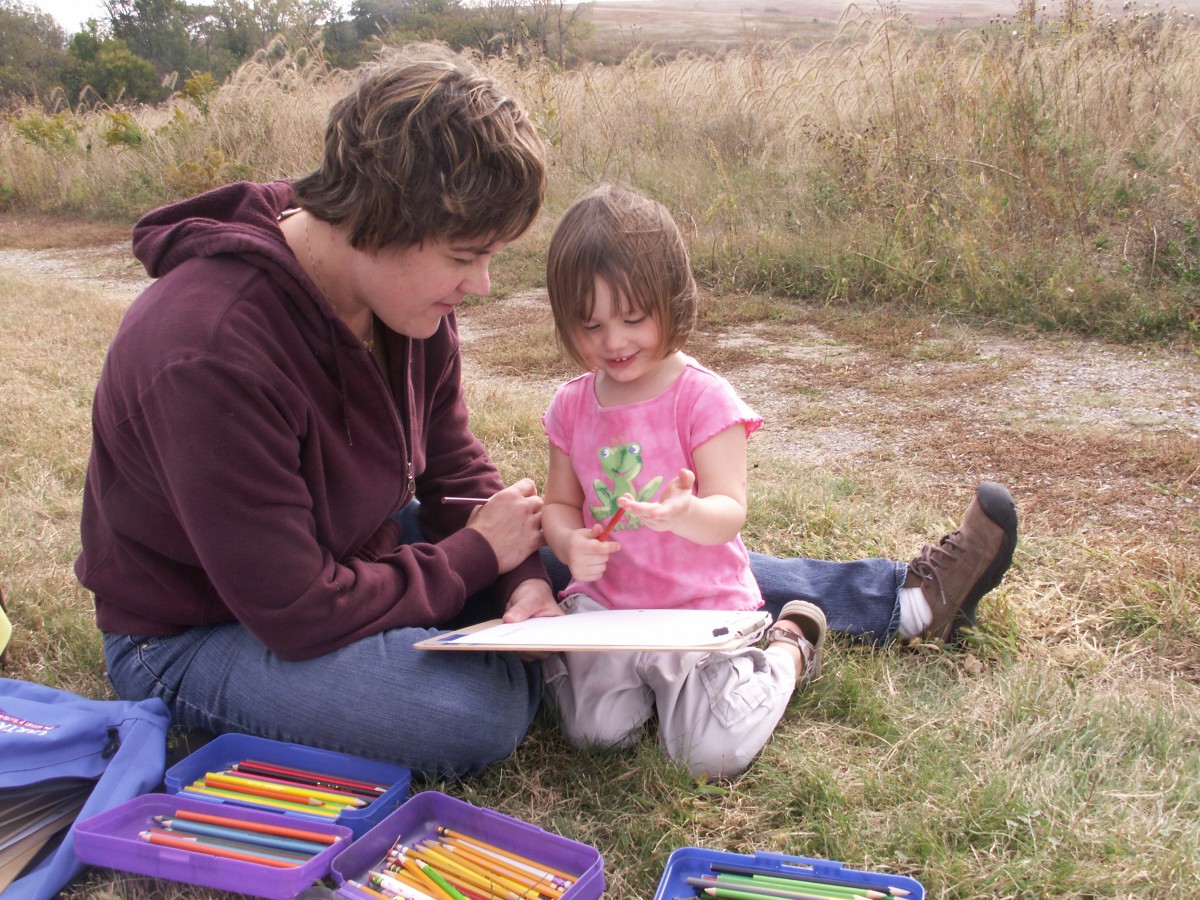Engaging Parents in Children’s Outdoor Learning: A Win-Win Proposition

This is the fifth in a series of “Roots in Research” blog posts, in which we summarize key findings of research conducted by Nature Explore staff and our colleagues at other institutions.
Parents play a significant and positive role in thriving Nature Explore Classrooms across the country. From fundraising to classroom maintenance, volunteering and sharing learning time, parents are essential players in their children’s educational experiences.
In order to fully capitalize on parents’ potential as partners in outdoor education, it’s vital to give them opportunities to see for themselves the myriad benefits of outdoor learning. Likewise, inviting parents to spend time in Nature Explore Classrooms helps them better understand the value of time in nature and choose to spend more time outdoors with their families.
Supporting parent engagement and involvement is an ongoing challenge and opportunity for schools and early childhood centers. Recently, researchers conducted a case study that explored parents’ understanding and support of their children’s learning outdoors through parent-documented observations. The research also examined ways in which program components—curriculum, environment, and relationships with staff—supported parents’ understanding of their children’s learning outdoors.
Key Takeaways
* Parents gained new insights into the value of time in nature. Parents’ perceptions shifted after they spent time in a Nature Explore Classroom, reflecting their newfound recognition that spending time outdoors has health and learning benefits for their children. From the study:
Amy, a young mother, described how nature provides calm and release to her three-year old son with autism. She compared her son’s behavior indoors to what she observed outdoors, noting that he was more content and a “happier kid” outside. She described the growing commitment she had made to provide her son with daily interaction with nature and her recognition that time outdoors had a positive, sustained impact on his behavior: “If we go out in the afternoon, our evenings are definitely easier.”
* Parents reported that they began to spend more family time outdoors, outside of the school day. They credited their shift in beliefs and behaviors to the information they had received in parent classes, exchanges with their children’s classroom teachers, and observations they had made of their children at home and in the Nature Explore Classroom.
* Parents reported their own increased awareness of the value of children having access to natural materials and unstructured time outdoors. They also recognized that the benefits of time outdoors outweighed any potential inconvenience. Said one parent,
I grew up on a farm and the children can play in the dirt up there, but they requested their own mud area at home, so I let them create one by the garden. They carry water buckets out and make mud. Their dad wasn’t thrilled…but the children are teaching us that mud is good! I can tell my husband when they are playing in the mud, “That’s research, honey. Just leave them alone.”
* Effective and lasting programming that engages parents begins with staff training and understanding. Teachers are a rich source of information for program participants and one of the most valuable tools in affecting parent attitudes and beliefs.
* In order to sustain a program’s focus on children and nature, Nature Explore educator workshops are crucial. Workshops on visual spatial learning, music and movement, how to use the Nature Explore Classroom, teaching with nature across the curriculum, gardening and incorporating art into outdoor learning all supported professional development for educators.

